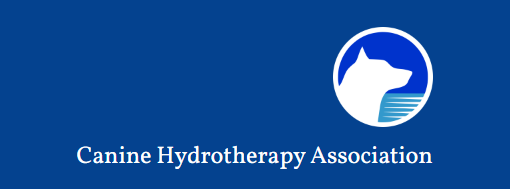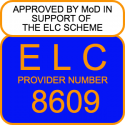Level 3 Diploma in Small Animal Hydrotherapy
MAKE AN ENQUIRY
| Ofqual Code | 610/3571/3 |
|---|---|
| Qualification Level | 3 |
| Guided Learning Hours | 351 |
| Credits | 44 |
| Practical Placement (Mandatory) | 5 day practical. Please note, course fees must be paid in full prior to booking the practical placement. |
| Study mode | Online and practical |
| Award type | Diploma |
| . | . |
| Post Completion | Meets the Canine Hydrotherapy Association (CHA) membership requirements |
| Assessment | Assessment will take the form of a range of in-depth theory assessments for each unit along with a practical assessment taken during the practical placement. |
| Enrolment Valid For | 24 months |
| Entry Requirements | Learners must be aged 16 or above. There are no entry requirements for this qualification however, it is expected that learners will have a working knowledge of at least Level 2 with good working levels of English and Maths. Due to the practical elements of this qualification, it is advantageous to have good physical mobility and physical fitness and to be a confident swimmer. |
| Total Qualification Time | 490 |
| Start Date | Anytime |
| Certificate Timeframe | On completion of their studies, learners can expect their certification within 6 months following the (EQA) External Quality Assurance assessment. All course fees, inclusive of all payment plans including our Premium Credit Limited option, must be settled before certification can be ordered. |
Unit 1
1. Introduction to Small Animal Hydrotherapy
This unit focuses on the main principles and reasons for animals requiring hydrotherapy. Learners will explore the intended outcomes of hydrotherapy and the key health, safety and legislation points to adhere to when carrying out hydrotherapy.
Unit 2
2. Administration in a Hydrotherapy Centre
This unit will introduce learners to the significance of Continual Professional Development and Professional Conduct in the workplace. Learners will gain an understanding of the roles and responsibilities associated with a hydrotherapy centre, along with the corresponding administrative tasks.
Unit 3
3. Assessing Suitability of Animals for Hydrotherapy
This unit examines the veterinary referral process along with conducting assessments and health checks of small animals. This unit will also examine the different professional team members engaged in patient treatment and evaluating patient appropriateness for hydrotherapy.
Unit 4
4. Conditions Presented for Small Animal Hydrotherapy
Knowing the conditions presented for hydrotherapy treatment is essential when formulating a treatment plan. Learners will be introduced to orthopaedic, neurological and medical conditions commonly seen in a hydrotherapy centre and the therapeutic management of these conditions.
Unit 5
5. Practical Skills in Small Animal Hydrotherapy
Learners will investigate the hands-on implementation of hydrotherapy, covering the initial assessment, patient preparation, the actual hydrotherapy treatment and subsequent aftercare. Learners will have the capability to lead hydrotherapy pool sessions and showcase proficiency in the practical administration of hydrotherapy.
Unit 6
6. First Aid for Small Animals
This unit examines the objectives of first aid, various emergencies that learners might encounter in a hydrotherapy centre, and the hands-on application of first aid techniques.
Unit 7
7. Water Maintenance, Balance and Testing
Learners will examine the significance of essential maintenance aspects in a hydrotherapy environment. This encompasses understanding water testing procedures and interpreting the outcomes obtained from essential water tests.
Unit 8
8. Small Animal Behaviour and Body Structure
Learners will explore the behaviour and body structure of small animals in the context of hydrotherapy. They will acquire knowledge relating to the safe handling of small animals, interpret their body language and examine the main structures and functions of the animal body, in order to provide the correct treatment.
Unit 9
9. Small Animal Biomechanics and Gait
When providing hydrotherapy treatment, it is essential that learners can assess the gait and movement, knowing what is normal and what is abnormal. Learners undertaking this unit will be provided with the knowledge and skills required to make professional judgements on biomechanics and gait.
Unit 10
10. Small Animal Anatomy and Physiology
Within this unit, learners will understand how the key structures involved in the body of small animals assist the hydrotherapist in providing and targeting treatment to the correct part of the body. This unit examines the main structures and functions of the animal body.
Unit 11
11. Practical Aquatic Treadmill Treatment
The objective of this unit is to equip learners with practical skills in utilising the aquatic treadmill. They will gain knowledge to comprehend factors influencing patients in the aquatic treadmill, enabling them to assess small animal patients for suitability and formulate a treatment plan.
Unit 12
12. Practical Advanced Aquatic Treadmill Treatment
This unit will equip learners with the understanding, information and hands-on experience in advanced aquatic treadmill techniques for customising hydrotherapy treatment. Learners will have the capability to carry out gait analysis and evaluate patient performance.
Unit 13
13. Understanding Small Animal Massage
Learners will explore the advantages of performing massage on small animals, along with the techniques involved in the process. Learners will gain an insight into the positive effects of massage on typical injuries in small animals. Additionally, students will acquire knowledge about the diverse approaches to small animal massage.
Unit 14
.
About Your Qualification
The Level 3 Diploma in Small Animal Hydrotherapy has been designed in consultation with industry professionals to provide learners with the knowledge and skills to practice as a small animal hydrotherapist, including both pool and treadmill therapy skills.
This Ofqual regulated qualification is designed for learners aged 16 and over, who are currently working with small animals and wishing to specialise in hydrotherapy, or for those learners who are new to the sector.
Through a combination of online theoretical study and practical experience, learners will gain an understanding of the techniques involved in the provision of hydrotherapy and the assessment required before small animal hydrotherapy commences. Learners will explore the various medical conditions and their impact on hydrotherapy treatment, along with tissue healing, small animal behaviour and professional practice management. Additionally, students will learn terminology to be able to conduct gait analysis and review patient performance practically.
This highly regarded qualification includes information on Practical Aquatic Treadmill Therapy and Advanced Treadmill Techniques – something that is not offered in any other qualification.
This qualification includes theory and practical training: The theory element is studied online, at your own pace and with full tutor support. The practical training is carried out in partnership with our training providers - with excellent reputations and outstanding teaching staff, providing individual training placements and ensuring excellent outcomes for our students.
Level 3 Diploma in Small Animal Hydrotherapy placements are being done in Northamptonshire.
Register My Interest

GET YOUR NUS EXTRA/ TOTUM CARD
All students who complete qualifications from level 3 or above are eligible for the NUS extra / Totum Card, which gives you access to over 200 UK student discounts with brands like Co-op, Amazon and ASOS. Apply and find out more at https://www.totum.com/



















